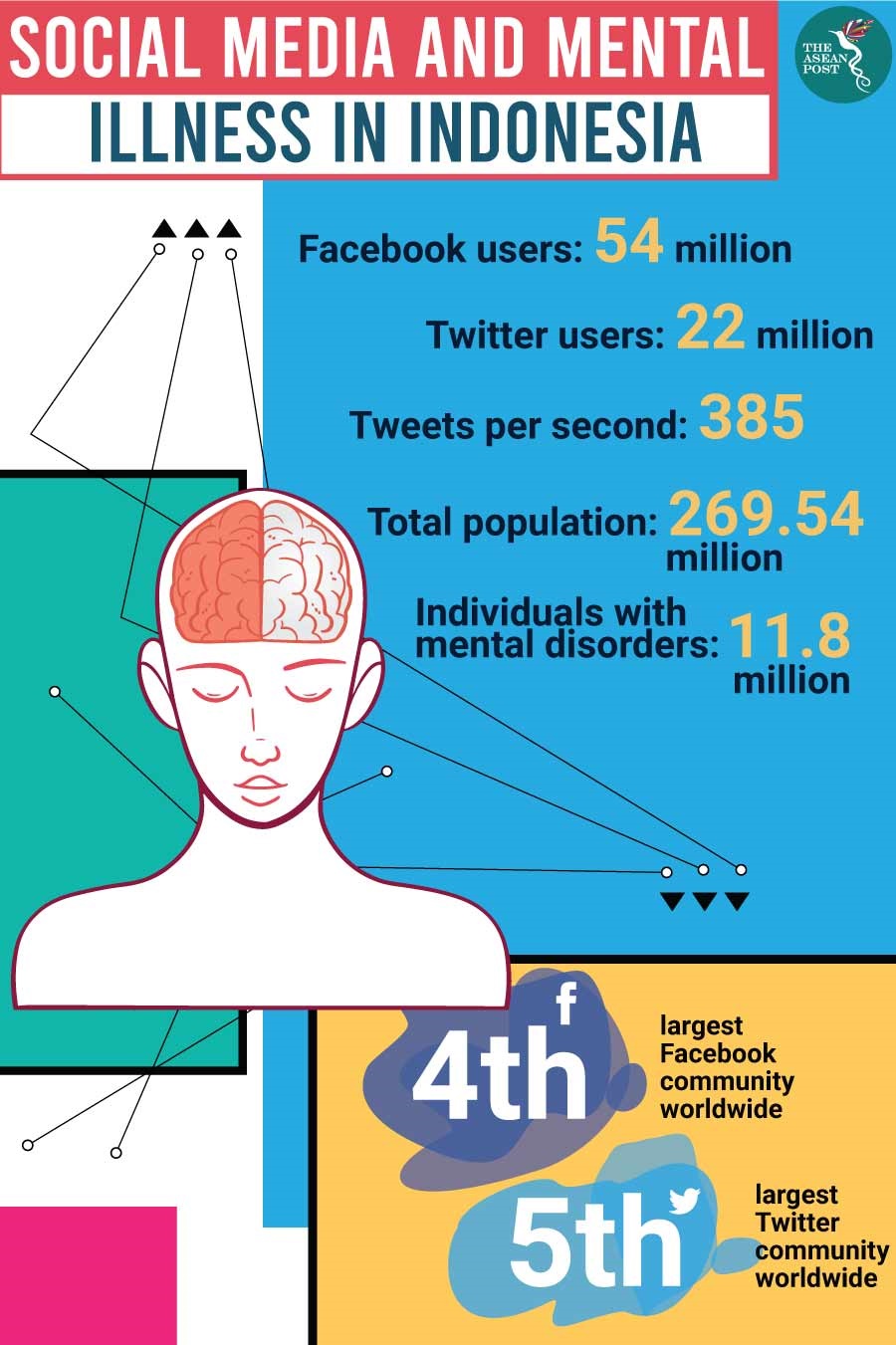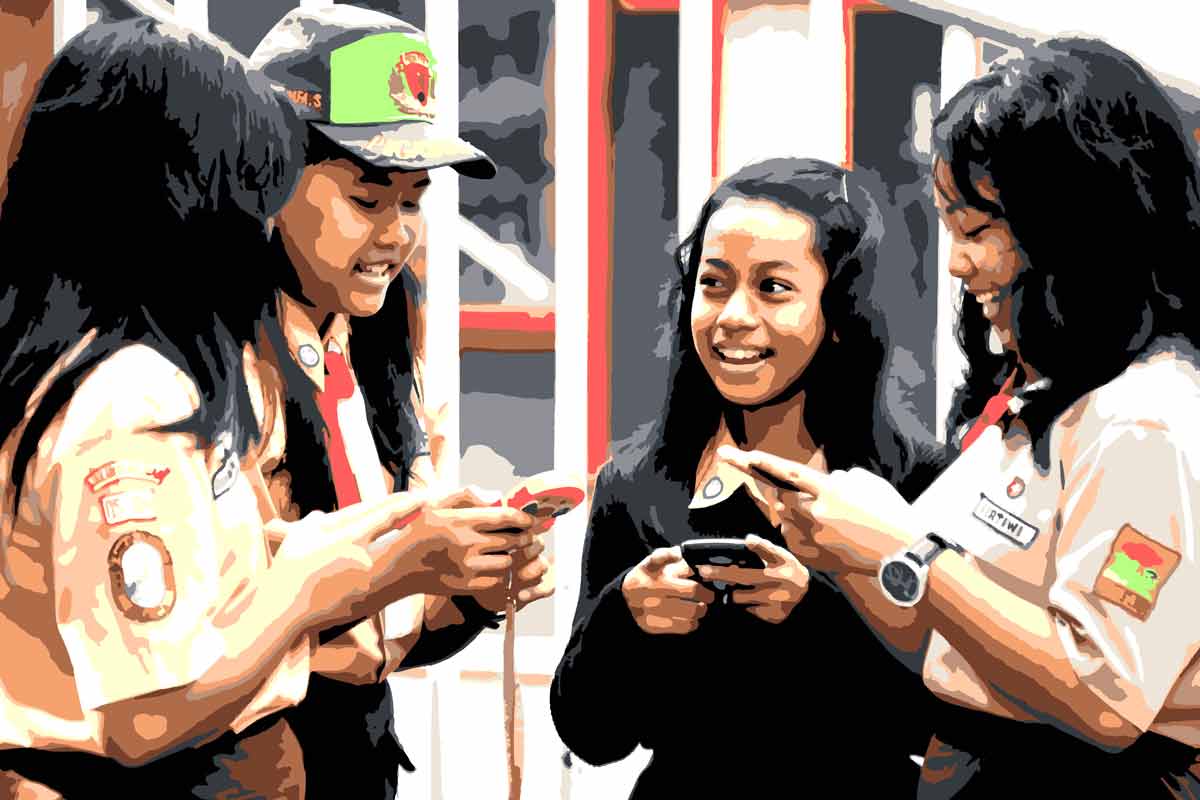Nowadays nearly everyone either has a Facebook account or a Twitter account. Many, in fact, have both or even more. Social media has become something that most of the world cannot imagine life without.
There are many advantages to using social media. Through social media, information can be obtained at your fingertips and in real-time, awareness of important issues can be spread faster than ever before. Even businesses gain from the marketing power that comes with social media.
There is little doubt that social media has added quality to life in many aspects. But what of the disadvantages?
Indonesia is home to an estimated 269.54 million people, a developing country with the biggest population in Southeast Asia and one of the biggest populations in the world. It goes without saying that Indonesia is home to one of the largest social media communities in the world as well.
Facebook reported a total of 54 million individual users in Indonesia, making it the fourth largest Facebook community in the world. Twitter reported 22 million Indonesian users, putting the country in fifth place worldwide. Indonesian users publish a total of 385 tweets per second on average.
Indonesia, then, makes a great case study for how social media affects people in developing countries. This is exactly what a team of researchers led by Sujarwoto Sujarwoto of the University of Brawijaya Malang, Indonesia did when they analysed data from the 2014 Indonesia Family Life Survey, which polled 22,423 individuals age 20 years and older. Their findings were published recently in the International Journal of Mental Health and Addiction.
While several studies suggest that social media use can have a negative impact on mental health, not much is known about whether these findings also apply in developing nations.
The research team’s analysis found that, consistent with global patterns, social media use contributes to poor mental health in Indonesia as well, and that there were additional features specific to Indonesia. For example, the country’s high levels of inequality are highlighted on social media, leading to envy and resentment. Also, the constant news about government failures, corruption, crime, conflicts and poverty was a contributing factor.
Mental illness is no small issue in Indonesia. Based on the latest Indonesia Basic Health Research survey 2018, the prevalence of individuals with mental disorders in the country is an estimated 11.8 million people.

Source: Various
Social media: The new drug
Early this year, researchers at Michigan State University released results of a study into decision-making and social media use. The results of that study seem to suggest that behaviours exhibited by those who overuse social media is comparable to the same behaviours shown by drug addicts.
“Decision-making is oftentimes compromised in individuals with substance use disorders. They sometimes fail to learn from their mistakes and continue down a path of negative outcomes,” the study's lead author, Dar Meshi, said in a statement.
"But no one previously looked at this behaviour as it relates to excessive social media users, so we investigated this possible parallel between excessive social media users and substance abusers."
The study enlisted the help of 71 participants. Each participant was then asked to carry out the Iowa Gambling Task (IGT) 100 times, a test commonly used by psychologists examining decision-making in humans and involves a gambling-type game where people must choose the best possible deck of cards.
The findings, which were published in the Journal of Behaviour Addictions, showed that people who performed worse in the gambling task used social media more and those who performed better were less dependent on Facebook. What was most interesting to researchers was that this link only revealed itself during the last 20 times people completed the IGT. At this point in the game, risk became much higher.
The findings therefore demonstrated that excessive social media use was associated with an inability to make good decisions in high-risk situations. Those who are addicted to drugs also show signs of this kind of behaviour.
On the study linking social media to mental illness in Indonesia, Global Development Institute researcher Gindo Tampubolon highlighted the importance of ensuring that social media users remember that there is more to life than Facebook.
“It’s a strong reminder that these technologies can have a downside. We would like to see public health officials think creatively about how we can encourage citizens to take a break from social media or be aware of the negative consequences it can have on mental health,” he was quoted as saying.
Related articles:
